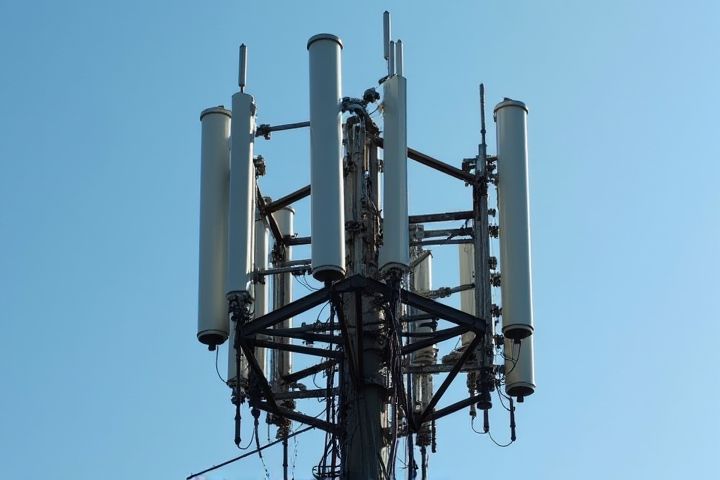
Nigeria's telecommunications sector has experienced rapid growth, transforming communication dynamics across the country. Major players, such as MTN, Glo, and Airtel, dominate the market, providing mobile network services to millions of subscribers. The rise of 4G technology has significantly improved internet accessibility, fostering digital innovations and e-commerce opportunities. Regulatory bodies like the Nigerian Communications Commission (NCC) enforce guidelines to promote competition and protect consumer rights. As a result, your ability to access affordable call rates and data packages has expanded, enhancing connectivity in both urban and rural areas.
Rapid mobile penetration growth
Telecom companies in Nigeria have prioritized rapid mobile penetration growth, significantly expanding access to communication services across urban and rural areas. Mobile subscriptions reached over 200 million, reflecting a surge in demand for affordable smartphones and reliable network coverage. Key players, such as MTN and Airtel, invest heavily in infrastructure development to enhance service quality and accessibility. As a result, mobile internet adoption has soared, providing users with opportunities for e-commerce, education, and social connectivity.
Dominance of major players like MTN and Airtel
In Nigeria's telecom industry, major players such as MTN and Airtel dominate the market, significantly influencing service pricing and availability. MTN holds the largest market share, leveraging its extensive network infrastructure to provide a wide range of services, including mobile data and voice calls. Airtel, on the other hand, is known for its competitive pricing strategies and innovative service offerings, attracting a diverse customer base. As these telecom giants expand their operations, they continue to shape the landscape of digital connectivity in Nigeria.
Expansion of 4G and 5G networks
Telecommunications companies in Nigeria are actively investing in the expansion of 4G and 5G networks to enhance connectivity and support the growing demand for high-speed internet services. The initiative aims to improve digital inclusion across urban and rural areas, enabling better access to online services, e-commerce, and educational platforms. Major players like MTN, Airtel, and GLO are rolling out infrastructure to facilitate faster data transmission and low-latency connections, positioning Nigeria as a leader in Africa's digital transformation. As a result, you can expect increased opportunities for innovation and economic growth, fostering a vibrant tech ecosystem.
Regulatory oversight by NCC
Telecommunications in Nigeria are significantly influenced by the regulatory oversight of the Nigerian Communications Commission (NCC). The NCC establishes guidelines and policies aimed at ensuring fair competition among telecom operators and safeguarding consumer rights. By enforcing compliance with standards related to service quality and pricing, the NCC plays a crucial role in enhancing the overall telecom infrastructure. For users, this regulation leads to improved service delivery, greater transparency, and increased access to communication services across the country.
Challenges with infrastructure development
Telecoms in Nigeria face significant challenges related to infrastructure development, including inadequate power supply, poor road networks, and limited access to fiber optic cables. The often unreliable electricity hampers the operation and maintenance of telecom equipment, leading to service disruptions. Bureaucratic hurdles and regulatory issues further complicate the investment landscape, deterring potential investors from enhancing network capabilities. Addressing these infrastructure deficits is crucial for improving connectivity and meeting the growing demand for mobile and internet services in Nigeria.
High smartphone usage
Telecoms in Nigeria have increasingly prioritized the enhancement of infrastructure to support the rising high smartphone usage among consumers. This trend reflects a shift towards mobile internet services, with over 120 million smartphone users driving demand for data plans and mobile applications. Major players in the telecom industry, such as MTN and Airtel, have invested in expansive 4G networks to cater to the growing appetite for seamless connectivity. As you navigate this digital landscape, the emphasis on affordable smartphones and data packages continues to foster inclusive access to technology and information.
Value-added services popularity
Telecom companies in Nigeria are increasingly prioritizing value-added services (VAS) to enhance customer experience and drive revenue. This includes offerings such as mobile banking, online gaming, and multimedia messaging, catering to a tech-savvy population. With a significant rise in smartphone penetration, VAS adoption has become vital for customer retention and market competitiveness. As a user, tapping into these diverse services can greatly enrich your mobile experience and provide convenience in everyday transactions.
Investments from international tech firms
Telecommunications companies in Nigeria are increasingly attracting investments from international technology firms, aiming to enhance their network infrastructure and services. This influx of foreign capital supports the expansion of mobile internet access and the development of innovative solutions within the sector. Notably, partnerships with global tech giants enable local telecoms to adopt cutting-edge technologies, such as 5G and artificial intelligence, fostering a more competitive market. You can expect that these collaborations will lead to improved connectivity and digital transformation across the country.
Issues with service quality and customer care
Telecommunications companies in Nigeria face significant challenges regarding service quality and customer care, which impact user satisfaction and retention. Issues such as network coverage, call drop rates, and data speed often frustrate customers, leading to a demand for improved infrastructure and technology. To address these concerns, many providers are investing in customer service training and support systems, aiming to create a more responsive and user-friendly experience. As a consumer, understanding these challenges can empower you to make informed choices when selecting a service provider.
Rural connectivity improvements
Telecom companies in Nigeria are increasingly investing in rural connectivity improvements to bridge the digital divide. By deploying innovative technologies such as satellite communications and solar-powered base stations, they aim to enhance internet access in remote areas. These initiatives not only provide essential telecommunication services but also boost local economies by facilitating e-commerce and improved access to education. As you explore Nigeria's evolving telecom landscape, recognize the critical role these advancements play in fostering social inclusion and economic growth.
